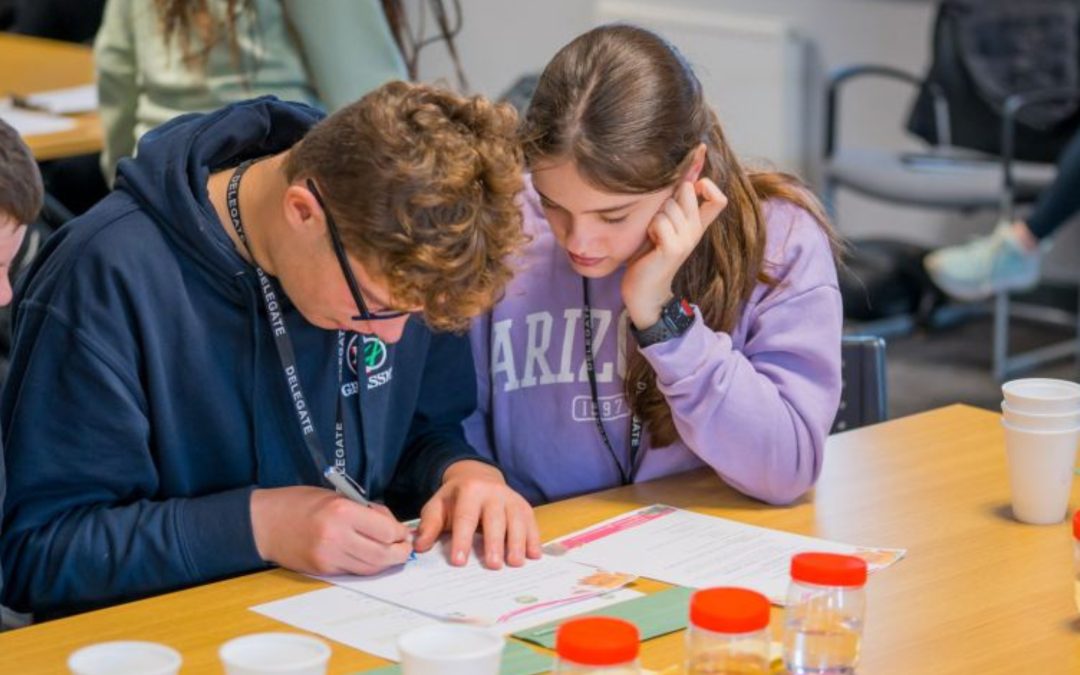Research from Linking Environment and Farming (LEAF) has found that growing awareness of environmental sustainability among teenagers can be a “major driver” when it comes to fostering interest in careers in the agri-food sector.
In a survey of more than 1,000 school and college-age pupils carried out on behalf of LEAF, a global charity that promotes and supports more sustainable farming, 83.5% of students stated it is ‘very’ or ‘somewhat’ important that their future career helps protect the planet. When asked what would make them most likely to explore a career in agri-food, ‘knowing it makes a difference for the environment’ scored 34.7% overall.
LEAF stated that it believes there is “huge potential” to positively engage with more young people about careers in sustainable food production, especially as its research shows that just 8.9% of school and college-age pupils report receiving any career information about agriculture.
Sustainable You(th) Challenge
LEAF has launched its Sustainable You(th) Challenge: Growing a better future, which will aim to offer students the chance to explore sustainability through hands-on learning and experiences about how sustainable food production plays a pivotal role in addressing global climate change. Students will meet people working in the industry and discover career opportunities in agriculture.
LEAF’s Sustainable You(th) Challenge is supported by McDonald’s and Harper Adams University. The two industry players stated that they are “keen to develop a pipeline of young people” with fresh ideas coming into food and farming.
Ellie Wotherspoon, agriculture and sustainable sourcing manager at McDonald’s UK and Ireland, said: “We’re really proud to be supporting LEAF’s Sustainable You(th) Challenge as a dedicated supporter of British and Irish agriculture we understand the importance of future-proofing the industry. Through partnerships like this one we are excited to be able to offer tangible opportunities to young people from a range of different backgrounds to consider a career in food and farming.”
Aimed at pupils currently aged 15-17, the Sustainable You(th) Challenge will provide bursaries to support further education opportunities; exclusive placements with industry partners; and flexibility around grades to help secure a place at a top agricultural university.
“Sustainable food production plays a pivotal role in addressing global climate change and we need new perspectives and fresh ideas as a sector to help us tackle those challenges head-on.”
Fiona Rust, education networks and partnerships lead at LEAF, believes growing awareness of environmental sustainability provides a significant opportunity to engage with students: “Addressing climate challenges is clearly identified as a meaningful motivator when it comes to considering food and farming as a career.
“By focusing on sustainable food production, climate change, biodiversity loss, and food security, the Sustainable You(th) Challenge aims to empower participants to be a force for good.
“Sustainable food production plays a pivotal role in addressing global climate change and we need new perspectives and fresh ideas as a sector to help us tackle those challenges head-on. By engaging young people about rewarding careers in agriculture, the Sustainable You(th) Challenge lets students explore how their passion for the environment can drive real and long-lasting change.”
Applications are open until 4th January 2026. A shortlist of 60 semi-finalists will be invited to attend a ‘Challenge Day’ at Harper Adams University on 25th April 2026, followed by engagement in LEAF’s iconic Open Farm Sunday event on 7th June 2026. Finalists will then be invited to a two-day residential at Harper Adams on 4th-6th September 2026, where the winners will be announced.
Free to enter, the initiative is open to students from across the UK. They must be in year 12 or 13 in the academic 2026/2027 year or born between 1st September 2008 and 31st August 2010. This means applications will come from students in year 11 or 12 in the academic year of 2025/2026.
Applications can be submitted through the LEAF website.









